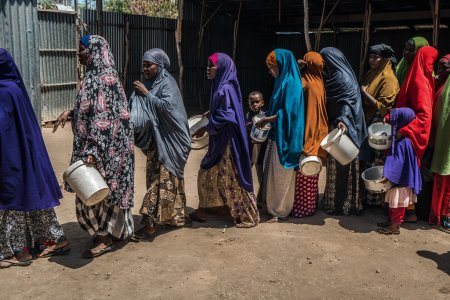
1,455 children under the age of five were admitted to a nutrition facility run by Plan International in Pibor county.
It comes after the South Sudan Integrated Phase Classification (IPC) Famine Review Committee classified Pibor and its surrounding areas as IPC phase 5 last month, meaning that famine is likely.
As families struggle to cope with the impact of hunger — which has escalated in recent months due to conflict, flooding and the COVID-19 pandemic — it is feared that teenage girls in particular will be at risk of sexual exploitation as they search for food.
Richard Orengo, Director of Programmes for Plan International South Sudan, said: “It is a heart-breaking situation to bear witness to and we fear we will see even worse suffering if the humanitarian response isn’t urgently scaled up.
“Families in Pibor have not yet recovered from the catastrophic flooding last year and the coronavirus pandemic has caused food prices to soar. As in all crises, girls face the biggest dangers. We know, for example, that searching for food and firewood places girls at risk of violence, rape, and other dangers.
“We are calling upon the Government of South Sudan and the international community to move with speed to prevent a humanitarian catastrophe in Pibor and its surrounding communities. With the rainy season just weeks away, time is of the essence.”
Humanitarian aid agencies can only easily access Pibor county, part of Jonglei state, until early April 2021, when the rainy season makes roads impassable and the transport of essential items extremely difficult.
Following flooding last year, Plan International has reached over 6,000 households in Verteth, Gumruk, Lukwangole, and Pibor town with food, water treatment tablets and nutrition items for children, pregnant and lactating mothers and others.
The organisation has been working with local communities to deliver food and treatment for malnutrition, alongside child protection services and education programmes.
Source: Plan International